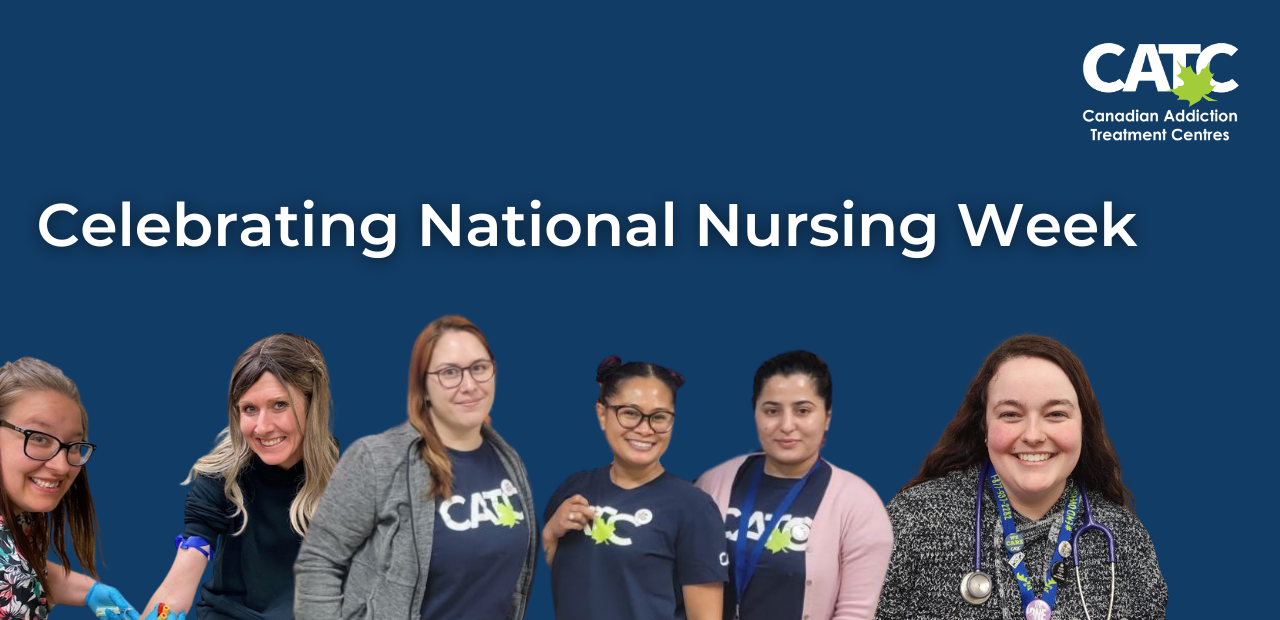Nursing Week 2024: Interview with Julia Marangon
Nursing Week 2024: Interview with Julia Marangon
During National Nursing Week, we’re celebrating the incredible nurses who play a pivotal role in the recovery process for patients and clients in our care. We spoke with Julia Marangon to learn more about her experiences, challenges, and the profound impact of her work.
1. Why did you become a nurse, and what drove you to specialize in addictions care?
I first became a nurse due to having my daughter at 19 and I needed a career path that would provide me steady employment. I choose to work in the mental health field as I was finishing school. I enjoyed the therapeutic relationship that you are able to form with the patients and knowing that you are making a difference in their journey.
2. Can you share a memory from your time working at one of our treatment centres, in which you were able to make a real difference in a patient/client’s recovery?
There are many patients that I have been able to make great connections with while working within our treatment centres. There are many patients that are a part of the Guelph clinic that have been thankful for making the process as to starting the program, and the ongoing support that I give to them as it makes a huge difference to their recovery. I try to make sure that I do check-ins with all my patients about what is going on in their personal life so that they know there is someone that cares about them and they can open up without fear of judgment in the clinic. It is hard to pinpoint one example as I try to do this with all of the clients that come to the clinic.
3. What do you find to be the most challenging and rewarding aspects of working in addiction treatment? What keeps you motivated through the challenges?
The most challenging part of working in addictions is seeing the cycles that the patients go through while battling to recover. Seeing the patients become upset with themselves because they know they can do it; I always try to provide support to them when this happens and let them know they only need to take it one day at a time and not to think about the future only about the day they are currently battling. I stay motivated through this because I know that the patients at my clinic are able to make the recovery and knowing that I can be a part of their journey and hopefully make a difference in their life.
4. What is your approach to building strong relationships with people in your care, and why is it so important to do so?
My approach is to talk to them about why they are starting the program and where they are at currently in their life. I try to do check ins with them at least once a week where they can talk to me about anything happening in their life without the fear of judgement. I try to make the clinic a safe space for all patients that come in to see us. Removing the stigma of what our program is and making it a supportive place for them to come instead. Our patients need to know they have somewhere they can go to that they are able to escape from what is happening in their life and be treated for the person they are not actions they have taken in life.
5. Why should nurses choose to work in addictions care? What is your favourite part of the job?
I think all nurses should work in addictions at some point in their career. You are able to see the changes you make in the patients’ lives in real time and join in their accomplishments whether it be getting carry doses on the program or finding a job they are able to keep while managing the stress of addiction on top. My favourite part of the job is being able to interact with all the patients that come into the clinic, getting to know them as a person and reminding them they are still good people regardless of their addictions.
Thank you, Julia, for all that you do. Happy National Nursing Week!

